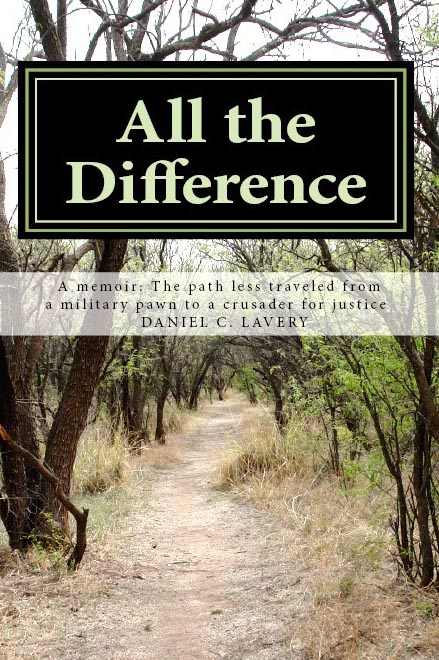All the Difference
By Al Wellman (reviewer)
[Printer-Friendly Version] All the Difference
Daniel C. Lavery
(CreateSpace Independent Publishing Platform, 2013)
The best history books are written by those who lived through the events described. "All the Difference" by Daniel C. Lavery is a well-written description of the United States' turbulent 1960s. The stage is set by a child's perceptions of life in the United States during the cold war. As the son of a career naval officer, Lavery lived in widely separated locations offering various perspectives from Florida to California. His description of cultural interactions during the post-war military occupation of Japan provides insight into an era changing both nations.
Lavery describes an adolescence defined by scholastic team sports. His athletic prowess sustained a successful self-image through uncertainty about career objectives. The comfortable diversion of team sports disappeared with graduation from the United States Naval Academy just in time for the Gulf of Tonkin Incident.
Chapters 24 through 33 recount a typical junior officer service obligation beginning with acquisition of the traditional new Corvette. Flight training with the RA5C Vigilante contrasts the reality of high-tech weapons systems against their advertised capabilities. Self-destructive drinking and driving reflect doubts about a military aviation career. After successful completion of flight training, Lavery requests reassignment to surface ships. Subsequent service aboard USS Oak Hill (LSD-7) brought combat zone experience in Camranh Bay and Danang followed by time in western Pacific ports including Taipei, Hong Kong, Yokosuka, Subic Bay and the unforgetable city of Olongapo.
Upon release from active duty, Lavery found in law school the means to effectively apply the energy and enthusiasm which had brought him athletic success before Vietnam. His description of California's energizing activism of the 1960s will bring back memories to every Vietnam veteran and offer a window for younger readers to understand the origins of VVAW.
After shipboard training with Naval Academy midshipmen during the summers of 1965 and 1967, Al Wellman accepted a Naval ROTC commission in 1969 and patrolled the PIRAZ station off North Vietnam aboard USS Chicago from 1970 to 1972.
| 

